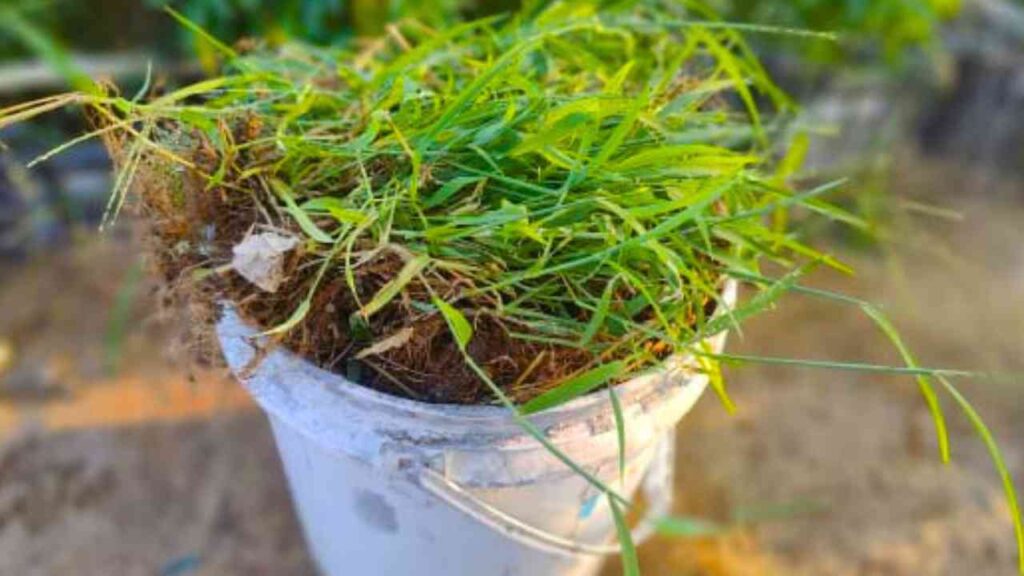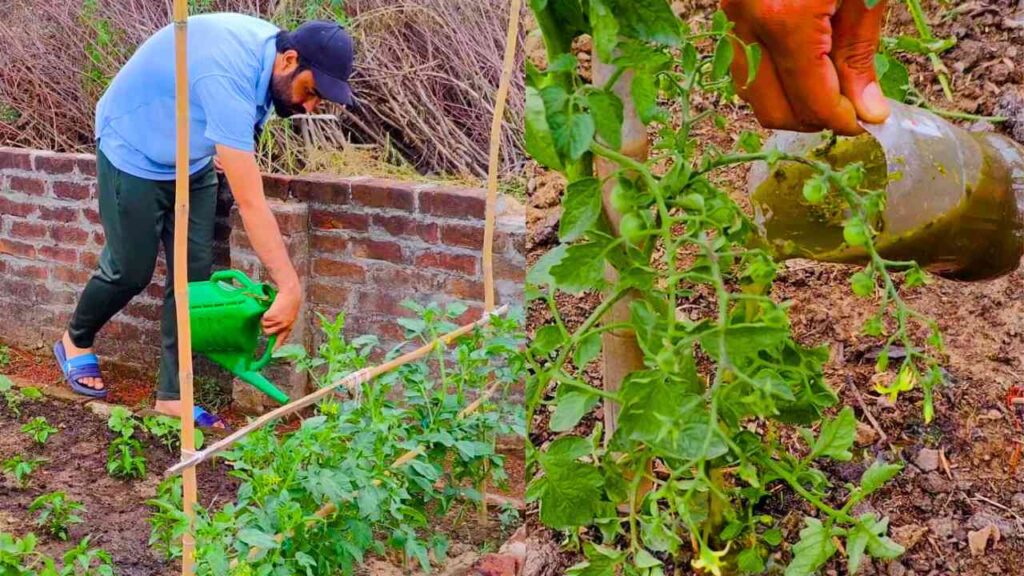Often regarded as the garden’s foe, weeds have a concealed potential that can help your plants. Rather than throwing them out, you may convert weeds into a free, organic fertilizer to feed your plants. Using weeds in this manner not only helps you recycle what you already own but also gives your plants necessary nutrients in a totally natural manner. Let’s explore some easy ways to convert weeds into useful plant fertilizer.
The Basic “Chop and Drop” Approach

The “chop and drop” approach is one of the simplest ways to incorporate weeds into your garden. This approach is as straightforward as it sounds: either manually or with a tool, collect your weeds and slice them into smaller bits. Cutting them into reasonable pieces helps to speed their breakdown since they can then disintegrate fast and give their nutrients back to the earth.
Using this approach requires keeping a few important points in mind. First, it’s preferable to do it on a dry day to prevent the weeds from straightaway rooting back into the soil. Second, stay away from cutting weeds with ripe seeds since you don’t want to unintentionally propagate new weeds all over your garden. Finally, avoid including the roots of creeping or perennial weeds, as they could keep spreading and growing after being cut.
Once the weeds are chopped, you may allow them to fall back onto the ground, where they will naturally decompose and provide useful organic material and nutrients for your garden. This approach is really straightforward, needs no unique equipment, and may be done often to maintain the health of your soil.
Including Weeds in Your Compost Bin

Including weeds in your compost heap or bin is another excellent approach to converting them into a potent fertilizer. Fresh, green weeds are a valuable supply of nitrogen, which is a main ingredient in composting. A key component in producing nutrient-rich compost is nitrogen, which helps to hasten the decomposition of organic material.
Are you adding weeds to your compost? Avoid those with seeds since you don’t want more weeds sprouting in your compost pile. The roots of perennial weeds should also be avoided unless your compost becomes hot enough to kill them off, since these roots can survive and grow in the compost if not carefully controlled. A well-rounded compost mix that can help your crop with rich, dark compost over time is created by balancing weeds with other compost components, like dried leaves or straw (the “browns”).
The Weed Tea Method

Although “chop and drop” and composting are good, one of the most nutrient-dense ways to use weeds is by creating weed tea. An extremely effective and strong fertilizer, weed tea can provide your plants a rapid increase in nutrients. Making it is as follows:
Collect a range of fresh, green weeds. Though it’s preferable to use healthy, plentiful weeds, the kind of weeds you utilize is irrelevant. Chop them into little bits to enable easier breakdown and nutrient release into the water.
Fill a bucket with the cut weeds, pressing them down hard to maximize the quantity of plant material. Once the weeds are packed in, add enough rainwater to completely cover them. You may also incorporate a few mature leaf mold or compost to provide beneficial bacteria, which will accelerate the breakdown process and enrich the tea with even more nutrients.
Cover the bucket loosely with a lid to let gases escape, and let the mixture sit for one to two weeks. Occasionally stir the tea to guarantee the weeds are disintegrating correctly and releasing their nutrients into the water.
Once the cannabis tea has steeped for the proper time, filter it to get rid of any solid components. The resulting black, nutrient-rich liquid will be Mix one part weed tea with ten parts water to dilute the tea before applying it to your plants. This guarantees that the solution may be absorbed without harm and not be too strong for your plants.
Apply to Your Plants: Directly apply the diluted weed tea to the soil surrounding your plants, ensuring it reaches the roots. Water your plants with it just like you would with any other fertilizer. To give a consistent fertilizer supply and encourage healthy plant growth, apply every 10 to 15 days during the growing season.
A strong natural fertilizer, weed tea performs miracles for several different plants. Recycling weeds into something useful is a wonderful approach to providing your garden a surge of necessary nutrients.
Why Use Weeds as Fertilizer?

Using weeds in your garden as fertilizer is a sustainable and eco-friendly approach to recycling plant material you would otherwise discard. You may make your own nutrient-rich fertilizers for free rather than purchasing expensive commercial fertilizers perhaps laced with dangerous chemicals. Weeds are also a great source of nutrients since they frequently include several that help plants, including nitrogen, potassium, and phosphorus.
Including weeds in your garden helps to naturally enhance soil health and fertility. All of these techniques will improve your garden soil and support robust, healthy plants, whether you decide to prepare weed tea, include weeds in your compost, or adopt the “chop and drop” approach.
Final analysis

Turning weeds into fertilizer is a quick and easy method to enhance your garden without forking over money on artificial goods. These free and organic techniques will benefit your plants whether you are making a nutrient-dense weed tea, utilizing them to make compost, or applying them straight to the soil. Best of all, you are recycling what would otherwise be deemed garbage, thereby fostering a more sustainable gardening technique.
Should you wish to share your experiences or have any other suggestions for utilizing weeds in the garden, please leave a comment below. Enjoy your gardening!

